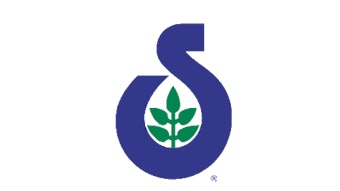
International Flavors & Fragrances (IFF) has provided an update on its business performance for the first eight weeks of the second quarter 2020 and provided additional commentary regarding ongoing business dynamics during the COVID-19 pandemic.
Preliminary business performance through first eight weeks of Q2 2020:
Sales declined by 3% on a currency neutral basis and 7% on a reported basis compared to the corresponding period last year, driven by continued pressure in certain end-market categories, across select countries and particularly with small- and mid-sized customers as a result of the COVID-19 pandemic.
Previously: IFF Smell Test Could Hold Key to Early COVID-19 Detection.
IFF experienced solid demand for products used in packaged food, beverage, hygiene and disinfection categories. Representing approximately 85% of total 2019 revenue, currency neutral sales for this portion grew by 3% compared to the corresponding period last year, with Consumer Fragrances up double-digits.
Previously: IFF Names Seventh Maser Perfumer: Shoji Kumasaka.
The categories most exposed to the temporary disruptions of consumer access to retail markets (fine fragrance) and away-from-home channels (food service), experienced significant pressure. Representing approximately 15% of total 2019 revenue, currency neutral sales for this portion declined approximately 40% compared to the corresponding period last year.
From a geographic perspective, North America showed resiliency, while the emerging markets, especially India and several Latin American countries, were impacted by COVID-19 and strong regulatory restrictions put in place to protect communities. In China, where restrictions have already eased, growth has sequentially improved.
Lower sales volumes and an unfavorable mix, combined with additional COVID-19 manufacturing and procurement costs, reduced gross profit by 12% on a reported basis compared to the corresponding period last year. Disciplined cost management and continued productivity initiatives partly offset these challenges.
The company quickly adapted its operations to responsibly operate the business while continuing to meet customer demand, despite some logistics challenges around the world. Nearly all of IFF’s global creative centers and manufacturing facilities continue to operate.
Across the IFF global network, teams have begun proceeding through the different phases of our return-to-work protocol. This gradual return-to-work strategy is intended to prioritize the safety of all IFF employees and create a new way of working that allows the company to continue meeting customers’ needs, while abiding by government mandates and regulations.
“The COVID-19 pandemic has showcased the dedication and persistence of our global team and the diversity and resiliency of our business,” said Andreas Fibig, IFF chairman and CEO. “These past eight weeks have coincided with the peak of restrictive regulatory actions around the world. We remain fortunate that most of our business is in end-markets and categories with relative strength, but we are not totally immune. During one of the most challenging periods all of us have seen, we’ve successfully adapted our ways of working to responsibly manage the business, while continuing to deliver innovative solutions to our customers.”
Fibig continued, “I am incredibly proud of how our teams have responded during this unprecedented event and that our year-to-date currency neutral sales are up low single digits compared to last year. Given the easing of restrictions in many countries that we are seeing in June, I am cautiously optimistic that sales and profit will improve as economic activity resumes.”









